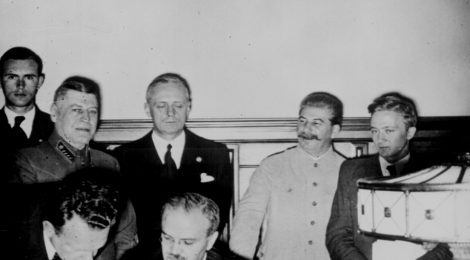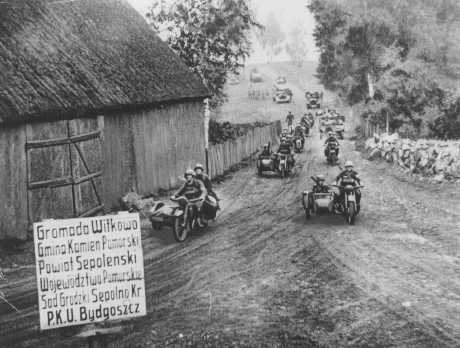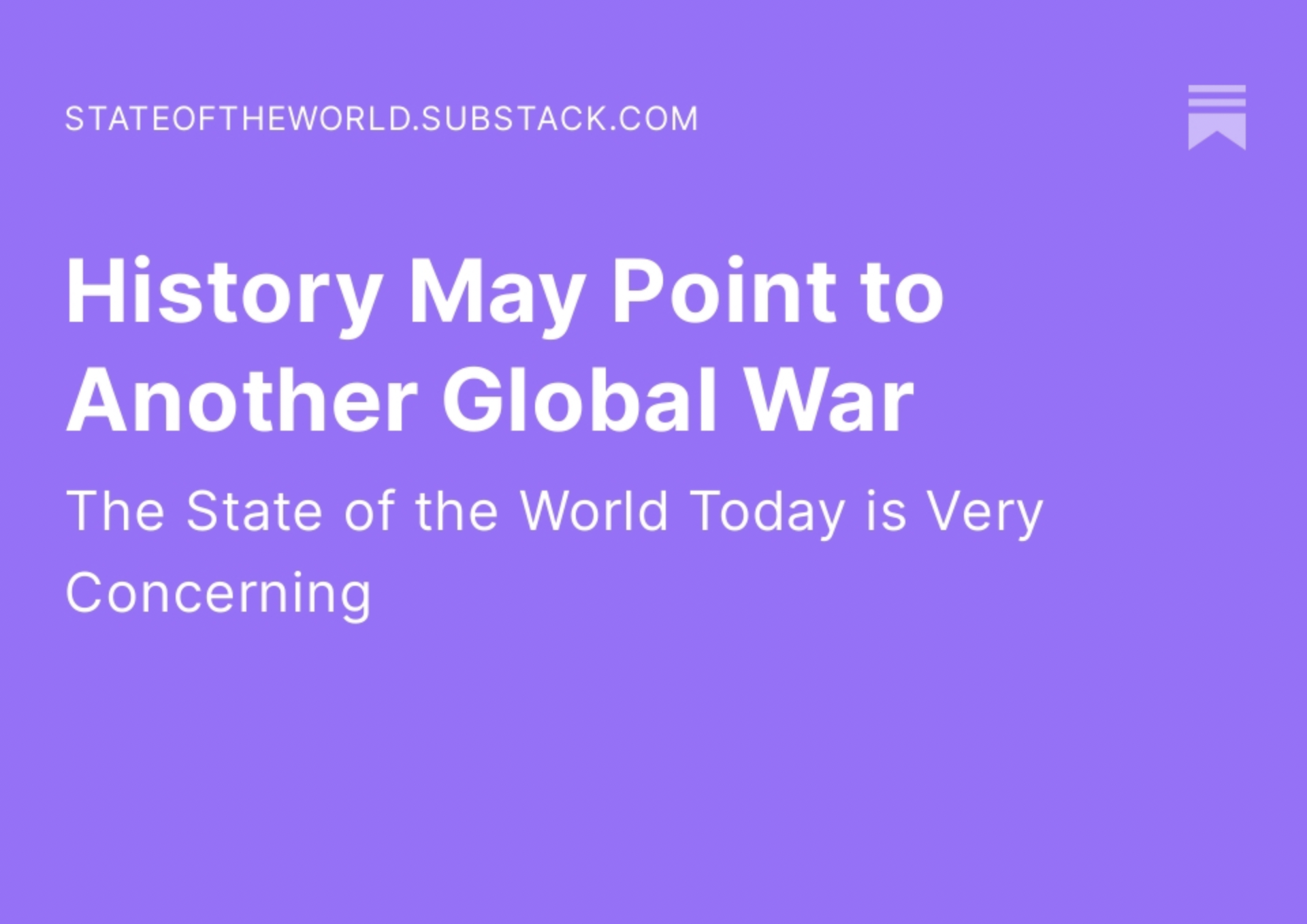
What Was The Soviet Union’s Culpability in Starting World War Two?
What Was The Soviet Union’s Culpability in Starting World War Two?
The year 2020 marks the 75th anniversary of the end of World War Two in Europe and in the Asia/Pacific Theater. While it is common to look at this war (which was really several wars connected through the several major alliances involving the combatant nations), as a simple good vs. evil, Allies vs. Axis paradigm, the reality is quite a bit murkier, especially when we look at who was culpable for the start of the war in Europe.
Hitler’s Germany certainly began the war by invading neighboring Poland, and then spreading their fascist and racist regime across Europe and North Africa as German armies blitzed their war across borders, but in many ways, history has forgotten Hitler’s most important ally as the war began: Stalin’s Soviet Union.
Germany only launched their sneak attack on Poland after signing the Treaty of Non-Aggression, known as the Molotov-Ribbentrop Pact, with the Soviets on August 23, 1939. Germany invaded Poland seven days later. This treaty gave Hitler a free hand to attack, since it specified Russia not only would not oppose Germany, but would actually join Germany in making war on Poland and dividing that weak nation among them. The treaty contained secret protocols that divided Eastern Europe between the two totalitarian dictatorships.
On September 22, 1939, the Soviets stabbed Poland in the back, invading from the east, as Germany’s armies smashed the Poles in the west of the country. The portions of Poland that the Soviets took in that invasion were never returned to the Poles.
In addition to dividing Poland, the treaty also stipulated that the Soviet “sphere of influence” extended to Estonia, Latvia, and Lithuania (collectively known as the Baltic States), Finland, and parts of Romania. In November, 1939, Soviet Russian armies launched massive attacks on Finland, eventually forcing the Finns to surrender after a strong initial defense. The Soviets seized large parts of Finnish territory along their border; again, land never returned by the Russians to their victim. Later, in 1940, the Soviets invaded and annexed the Baltic States and seized part of eastern Romania, all per the infamous treaty with Hitler. The Baltic States would continue to suffer foreign occupation by the Russians until the collapse of the Soviet Union in 1991, when they again became free and independent nations.
Until Hitler’s betrayal of his erstwhile ally with Operation Barbarossa in June, 1941, the West saw the Soviets as Germany’s partner in conquest. Even though forced by circumstances to be allies, the British (and, after Pearl Harbor, the United States) worked with the Soviets to fight Germany, they did so with vastly different ideas of what a post-war Europe would look like. Whereas British and American troops liberated occupied European nations from German control and enabled the democratic rule of law again, when the Soviet armies pushed back Axis forces in Eastern Europe, they suppressed freedom and established Communist regimes that would oppress their own people for nearly forty years past the end of World War Two.
Soviet Russia entered the Second World War as an aggressor, as an ally of Hitler, and as a suppressor of freedom. They ended the war as an enemy of Hitler, but the Soviets took the opportunity to replace German tyranny with their own brand of oppression and they dominated most of Eastern Europe for decades to come.
Why bring this up now? The start of World War Two is over 80 years past, and the Soviet-supported regimes in Europe have been reduced to the dustbin of history for over 30 years now. Russia is no longer ruled by the Communist Party, but she is controlled by strongman Vladimir Putin, who is a product of the Soviet system and a former officer in the old Soviet KGB. As he works to revive Russian power and influence in the world, he reacts to any perceived slight to Russia’s role as a member of the Allies and her very important contribution to the defeat of Hitler’s Germany.
A recent article in Forbes by James Rodgers points out Putin’s displeasure with recent comments by Western leaders and by the European Parliament in regards to Russia’s role in World War Two. Specifically, the European Parliament called out Russia’s culpability in helping Hitler start the war. In response, Vladimir Putin submitted an article to National Interest, in which he lays out a history lesson (from the Soviet/Russian point of view), where he lays blame on the West (correctly citing the Versailles Treaty ending World War One, the Munich Agreement, general British and French diplomatic and military decisions, etc.), puts some blame on Stalin, but tries to wash Russia’s hands of any guilt associated with the Soviet invasion of Poland or the occupation of the Baltic States.
Putin goes into great detail in his lengthy article on the significant Soviet contribution to defeat Hiter’s Germany, but he offers up excuses and justifications for attacking Poland. No mention is made in Putin’s article about the Russian attack on Finland and their land grab. Putin’s article is, in reference to Soviet culpability in starting off the war in Europe revisionist history, an attempt to gloss over Russia’s guilt in participating in the opening rounds of the war by highlighting the incredible sacrifices made in the war against a common foe, which only happened because Hitler attacked Russia, drawing the Soviets into the war and forcing the Russians to become allies of the British and later, of the Americans.
It is clear that in looking at the start of World War Two in Europe, that the Soviet Union was a partner in Hilter’s attack on Poland, and in their secretly-planned division of Eastern Europe. No amount of historical revisionism by Putin’s Russia will change the fact that Soviet Russia was intimately involved from the beginning in World War Two.

